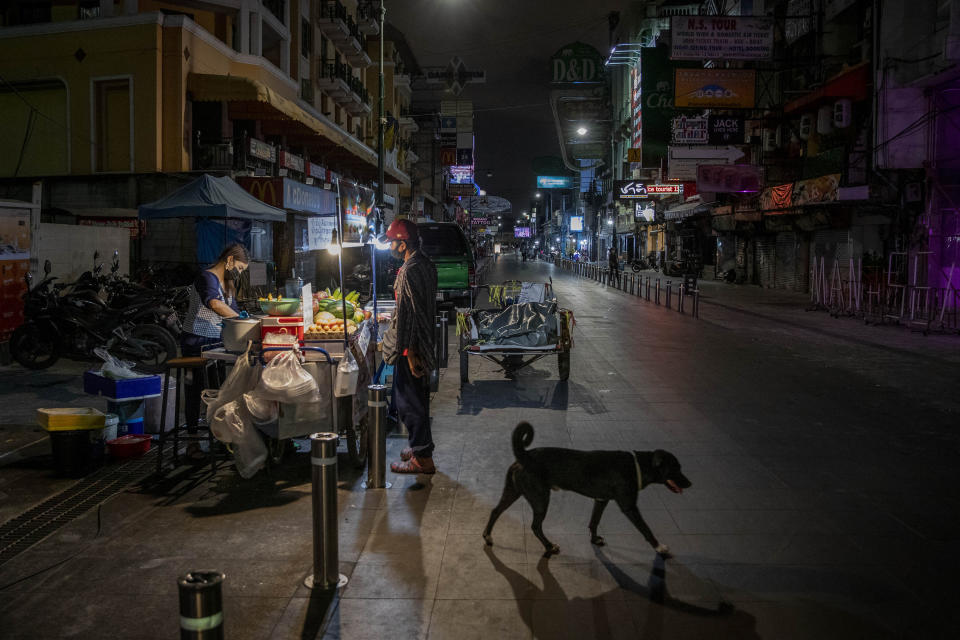by Wang Yaguang
BANGKOK, Apr 14 (NNN-XINHUA) – Devoid of foreign tourists, the Thai capital’s once-bustling Khaosan Road, looks like a ghost town, lying quiet during the country’s most important annual festival – Songkran.
During these days in normal years, the Khaosan Road would be chaotic with people going bananas, in water splashing and exchange of water gunfire to celebrate the Thai New Year. This year, however, there are only lonely pedestrians and cats napping on the empty road.
Businesses that line the 410-metre stretch, famously known as paradise for foreign backpackers, with cheap accommodation, street food and nightlife, were on the cusp of life and death, while a new wave of COVID-19 outbreak added to the misery.
Ponsak Yenwattankun, 50-year-old manager of the Lucky Beer, sat in the closed restaurant on Khaosan Road, celebrating Songkran with his remaining employees.
Ponsak runs the restaurant for years. He used to see crowded customers extend out into the street, in the pre-pandemic days. “After the first wave of the pandemic last year, our revenues were halved. But now we have no customers and no revenues, and have to close the restaurant.”
Speaking of his new year wish, Ponsak said, he hoped that business could resume, lifting them out of the hopeless situation.
Like Ponsak’s restaurant, pubs and stores that previously relied on foreign tourists, faced grim prospects. Many had to shut down, while others tried to stay afloat on the street, which could generate a daily income of 20 million baht (about 636,000 U.S. dollars), and 100 million baht during Songkran in pre-pandemic days, according to the Khaosan Road Business Association.
The Thai government cancelled public Songkran celebrations this year, for a second year, amid a growing outbreak in the country, where new confirmed COVID-19 cases hit a daily record of 1,335 today.
The new spike in infections forced the government to temporarily close entertainment venues in the capital, and 40 other provinces, and threatened to undermine plans to welcome back foreign tourists and boost domestic travel, to support the tourism sector, a key income earner.
Thailand planned to reopen resort island Phuket from July, and waiver quarantine for vaccinated visitors heading there. Similar measures might be expanded to other tourist hotspots, such as Pattaya and Koh Samui, from Oct this year.
The country has been closed to foreign visitors for a year, and managed to keep the numbers of infections and deaths at relatively low levels. Its total caseload has risen to 35,910, with 97 deaths today.
The government pinned its hope on a return of foreign visitors to lift the economy from the deepest decline in more than two decades. The number of foreign tourist arrivals into Thailand plunged to 6.7 million in 2020, from nearly 40 million in 2019.
“No foreign tourists, no business,” said Somchai Sijin, a driver of a three-wheeled motorised tuk-tuk, parking at the entrance of Khaosan Road.
Driving around Bangkok for more than two hours, the 46-year-old only had one passenger and earned 60 baht, barely enough to cover the fuel cost. Having been in the business for 30 years, Somchai never expected that one day he would use the Khaosan Road as a place to rest.– NNN-XINHUA






